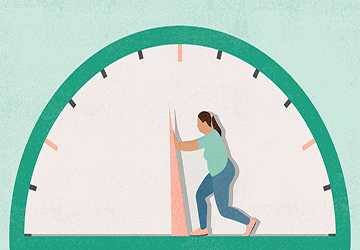Creating a Sustainable Eating Plan for Lifelong Weight Loss
We know that whether you're stressed about your weight or feeling sluggish, it's often about losing weight. It doesn't matter why you need to lose weight; now is the perfect time to start.
Try logging your eating habits with a food habit tracker app on your remote, or keep a 7-day food diary in Notepad if you don't know where you're out of balance. We have developed some basic methods for lifelong weight loss.

Reason – you want to lose weight
No matter what you read, obesity problems are not caused by a "lack of self-discipline" or a single food. Many things can affect our diet. Due to changes in the environment and lifestyles in recent decades, we are more inclined to eat ready-to-eat or takeaway food. Because of this, it can be challenging to make healthy choices. This often results in more significant portions and more sugar, salt, and fat than home-cooked meals.
Also, we move less than before. We are often reluctant to walk or cycle because our posture and recovery exercises require us to sit longer. We miss opportunities to practice before work because many of us are working from home more often.
To this end, we must exercise and pay attention to diet. As busy as our schedules are, trying to eat well and exercise is often a part of it. As a first step, consider the reasons for your weight gain. Is this a typical case or something else? When you gained weight, did you do something sudden, such as eating out more, exercising less, or eating a different type of food?
Set weight loss goals
Losing weight can be difficult. First, determine how much weight you want to lose. As more and more people become obese, our perception of what constitutes a "healthy weight" may change. Assuming you weigh more than you naturally suspect, don't be discouraged, and don't think you need to put in an extreme effort. Break it down into small goals and label them slowly and carefully.
Change your lifestyle
Many foods, supplements, and products claim to help us lose weight. The basic concept of weight loss is simple, even if the options are confusing: It matters that you eat fewer calories than you burn.
Many people find it more beneficial to focus on long-term strategies that work for them than to "diet." Eliminating fat or carbohydrates works for some people; counting calories and restricting certain days works for others. Ensure your plan includes all types of food to take the necessary supplements.
Changing your eating habits and increasing your workload is more convincing than changing your eating habits alone. So think about how you can improve your workload. Examples include:
l Bike or walk instead of driving.
l Exercise at home.
l Go for a walk or run with a friend.
Break up your weekly 150-minute workout into 10-minute workouts if that seems too much.

Start with a balanced diet
Eating lighter, reduced-calorie, or low-calorie versions of your favorite foods can be beneficial; however, that doesn't always mean they're low in sugar or salt. So keep an eye out for food stamps and choose healthy alternatives rather than low-calorie ones.
Even modest weight loss is something to be proud of and will positively affect your health in the long run. Healthy nutritional supplements include high-calorie foods such as smooth fish, unsalted nuts, and avocados. None of these foods need to be avoided. However, it will help if you limit portion sizes as much as possible or eat them occasionally.
Make breakfast a priority
Skipping breakfast will not help with weight loss and can lead to insufficient intake of essential nutrients and an increased likelihood of snacking throughout the day due to hunger.
Stay hydrated with plenty of water
Thirst can sometimes be confused with hunger, leading to unnecessary calorie consumption. Drinking plenty of water can differentiate between starvation and dehydration and help prevent excess calorie intake.
Increase fiber intake
Including high-fiber foods can help you feel full for longer, promoting weight loss. Choose foods such as oats, whole-wheat bread, fruits, vegetables, brown rice, whole-grain pasta, lentils, beans, and peas because these foods are high in fiber.
Choose a smaller plate
To adjust portion sizes efficiently, consider using smaller plates. Eating slowly and stopping when you feel full is essential, as it takes about 20 minutes for your stomach to signal to your brain that you are full. You can gradually get used to smaller portions without feeling deprived by using smaller bowls and plates.
Avoid hoarding junk food
Resist temptation by avoiding unhealthy snacks such as chocolate, chips, pastries, and sugary drinks at home. Instead, choose nutritious alternatives, such as rolled oats, unsalted rice cakes, unsweetened popcorn, and fruit juices. When you're hungry, you can make healthier choices by stocking your pantry with healthy foods.
Maintain a regular eating habit
Eating regular meals throughout the day can help boost your metabolism and burn calories more efficiently, and it can also help reduce cravings for sugary and fatty snacks. Stick to a consistent meal plan to support your weight loss efforts and encourage a healthier relationship with food.
Diploma
We know that whether you're worried about your weight or need some relief, you're often making progress toward your weight loss goals. It doesn't matter why you want to lose weight; now is an excellent time to start. So you can focus on sustainable life changes and eating habits to achieve lifelong weight loss!